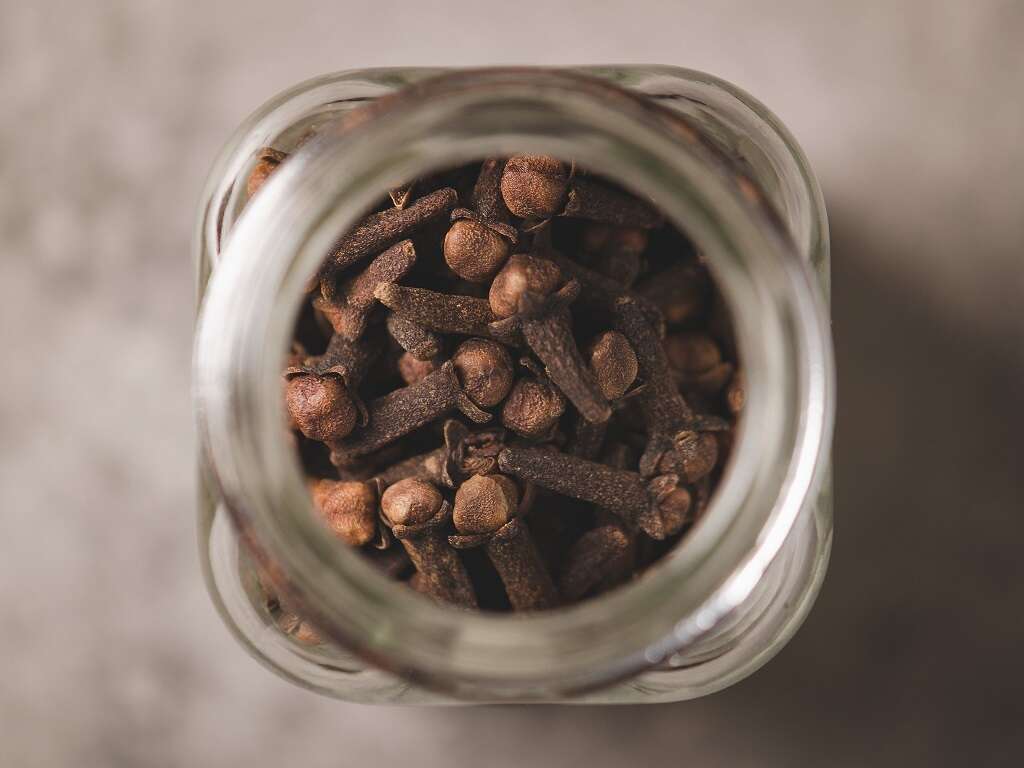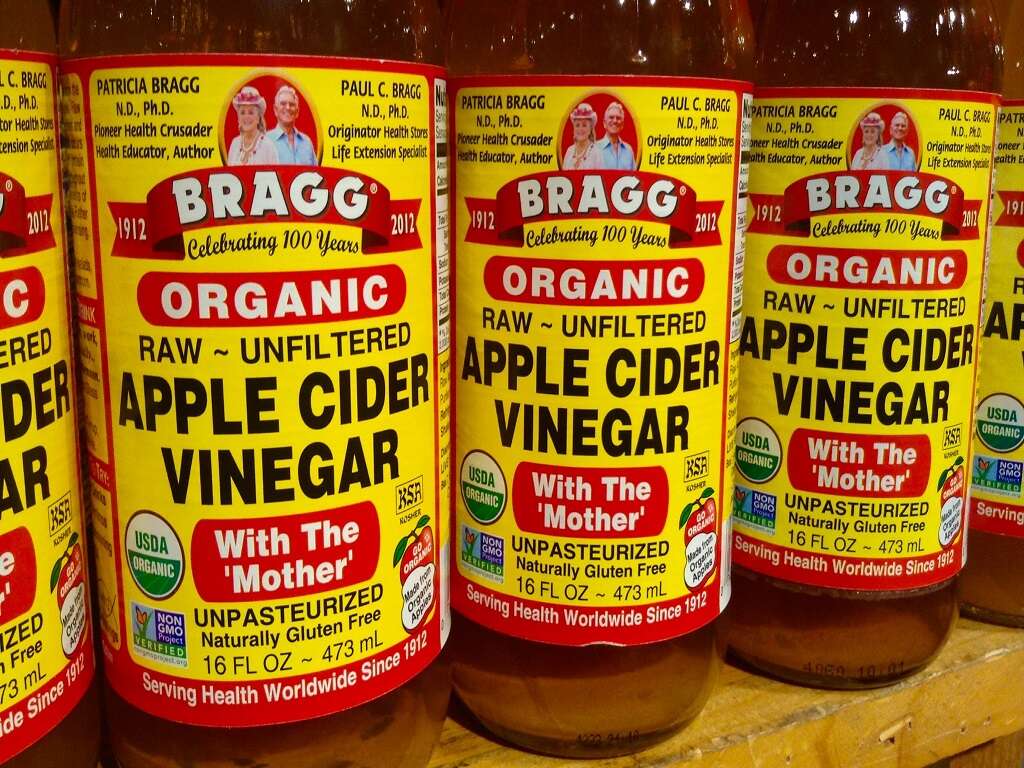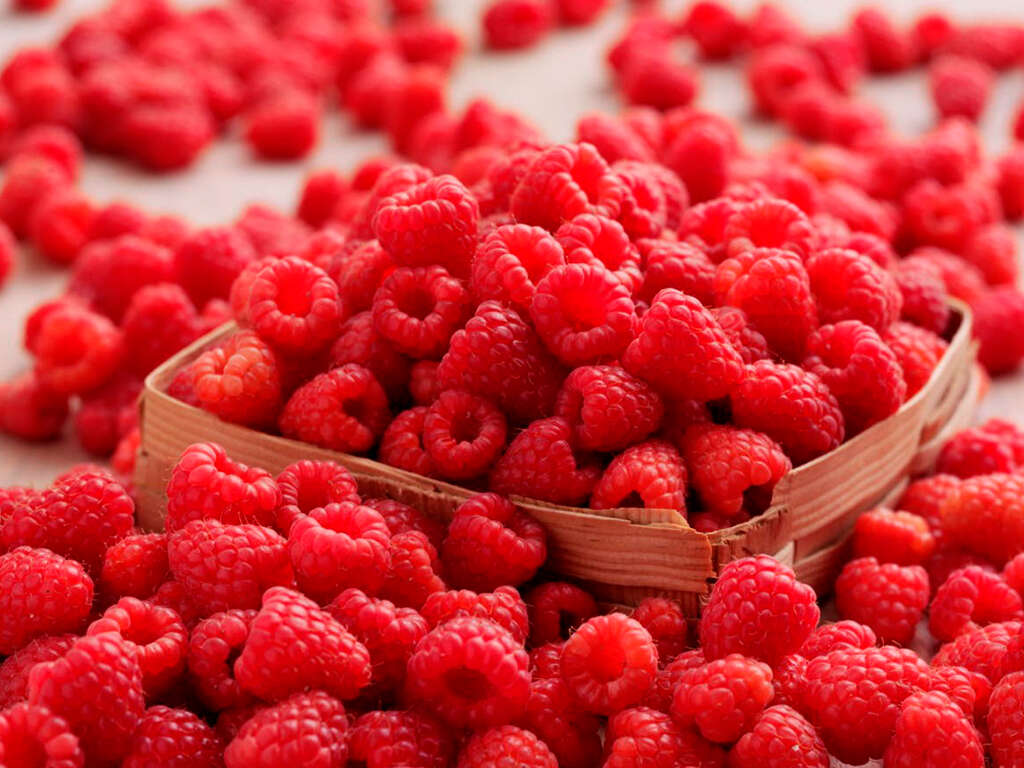10 Benefits of Cranberries
Cranberries are not the most consumed or produced fruit. In fact, they are known as a “special occasion food” because they are mostly purchased during the holiday season. In fact, 20% of all cranberries consumed in the United States are consumed on Thanksgiving.
However, despite the lack of attention they receive, cranberries have numerous health benefits. One of the most notable health benefits is their antioxidant capabilities.
Cranberries are mostly produced in Northern America and Chile. Most cranberries are processed into products such as juice, sauce, jam, and sweetened dried cranberries. The fruit belongs to the berry family and is initially green, but gets its dark red color when ripe. Cranberries are very sweet; however, the acidic taste usually overwhelms the sweetness.
Benefit #1: Prevents Urinary Tract Infections
A urinary tract infection (UTI) is defined as an infection in any part of your urinary system. This includes your kidneys, ureters, bladder, and urethra. Most of those infected by a UTI involve the lower urinary tract, thus the bladder and the urethra. Both men and women can suffer from a UTI, however, women are at a greater risk for the infection.
Cranberries have been linked to preventing a UTI. Cranberries are filled with an antioxidant called proanthocyanidins (PAC). PACs reduce the ability for bacteria to stick to the wall of a urinary tract and thus reduce chances of developing UTIs. Thus, if you are sensitive to UTIs, adding cranberry juice to your diet could be beneficial.
Benefit #2: Improves Digestion
Fiber is essential in healthy bowel movements. There are two forms of fiber; insoluble and soluble fiber. Insoluble fiber is not dissolvable, it stays intact and helps move stools through your system by adding bulk to them. This form of fiber is essential for those suffering with constipation. Soluble fiber dissolves in water and slows digestion, which helps with keeping blood sugar levels stable.
Cranberries are filled with fiber. One cup of cranberries has 4.6 grams of fiber. This is important because we need fiber for a healthy digestive system and to maintain regular bowel movements. Thus, if you have issues with constipation, cranberries alongside water can really help decrease the time spent in the bathroom.
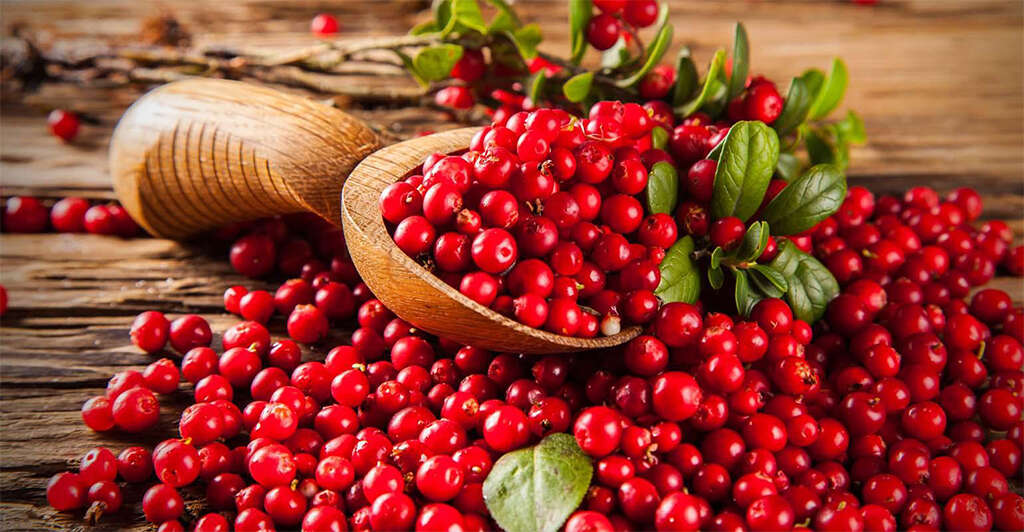
Benefit #3: Helps Reduce Cholesterol
Too much LDL cholesterol in the body is not good. A high level of LDL, which is often followed by high triglyceride levels, can lead to heart disease. The cause of 1 in 4 deaths, it is incredibly devastating as well as preventable. Research has suggested that the consumption of low calorie cranberry juice can reduce bad cholesterol and reduce triglyceride levels as well.
In one specific study, three men aged 50 and above were given a low calorie cranberry juice for 4 weeks. They found a significant decrease in LDL levels after the 4 weeks. They also found that the consumption of sweetened cranberry juice had the opposite effect. Thus, when shopping for a cranberry juice, be careful not to buy the one with added sugars.
Benefit #4: Low Calorie
Cranberries are a great addition to the diet because they are low calorie but high in vitamins and minerals. This means you can tackle those necessary nutrients without packing on the calories. With the rise of obesity and the confusion of what is healthy and what is not, cranberries can be added as a healthy snack or a part of a meal.
One cup of whole cranberries yields 46 calories. With such a low caloric amount, you will be tackling numerous vitamin and mineral requirements. For instance, one cup includes 18% of your daily value for vitamin C, which is essential for the immune system and iron absorption. It also tackles 16% of your daily value fiber and manganese.
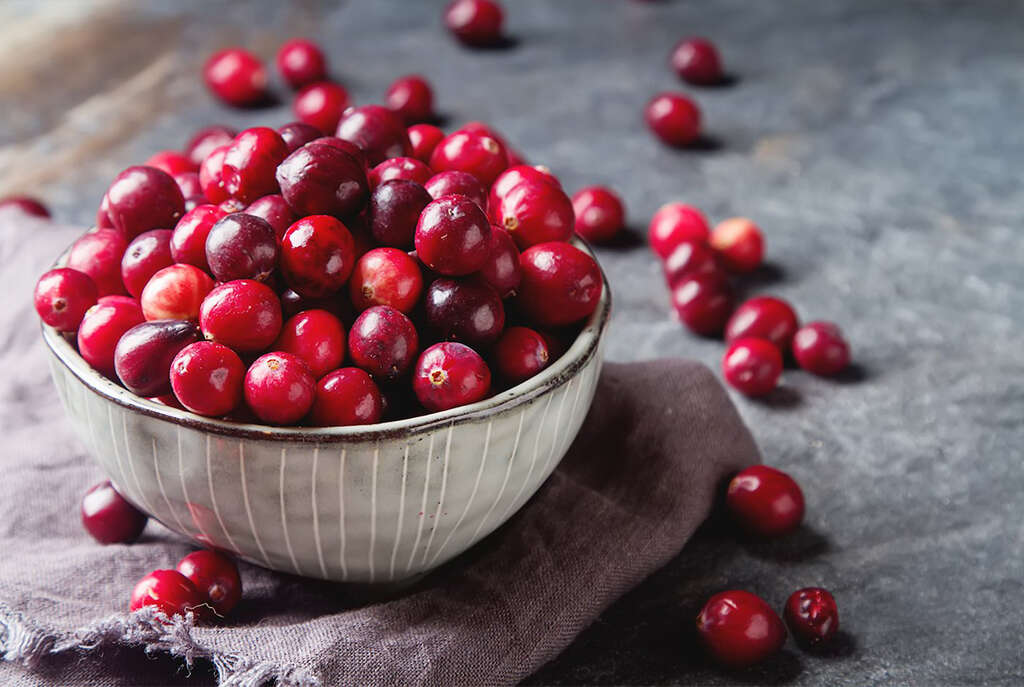
Benefit #5: They Can Help Prevent Gum Disease
As mentioned above, cranberries contain PACs, antioxidants that fight off bacteria. Cranberries can fight off the bacteria that stick and grow in the oral cavity, and can limit the progression of gum disease. They do this in a very similar fashion to the way they help with UTIs.
In fact, recent in vitro studies have shown that cranberry PACs may be potential therapeutic agents for the prevention and management of periodontitis, an inflammatory disease of bacterial origin affecting tooth-supporting tissues. Periodontal disease affects over 65 million adults. Thus, any combat factor is beneficial.
Benefit #6: Boosts the Immune System
As mentioned above, cranberries are a vitamin-rich food, and with an 18% daily allowance of vitamin C, consumption of the fruit will ensure the rich benefits of this vitamin.
Vitamin C has many functions in the body. It is essential for collagen formation which is essential for healthy nails and hair. It protects skin from sun damage, aids in the absorption of iron, and boosts the immune system (great for when you have a cold). Vitamin C’s effect on the immune system has been studied for years. What is understood is that the vitamin contributes to immune defense by supporting the epithelial function, which also fights pathogens and oxidation.
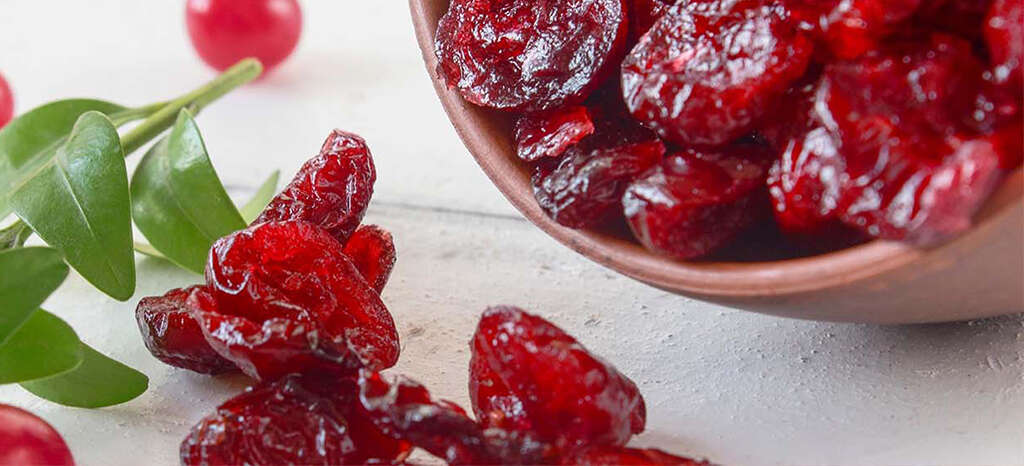
Benefit #7: Blood Sugar Regulation
For diabetic or pre-diabetic individuals, it is essential to focus on foods that have a low glycemic index. Low glycemic index foods are foods that will not cause a rapid spike in blood sugar after consumption. Fresh cranberries are great because they are a low glycemic food, which means they are slowly digested, absorbed, and metabolized and cause a lower and slower rise in blood glucose.
Animal studies have shown improved insulin and blood sugar regulation. In addition, there has also been a cranberry study on people diagnosed with metabolic syndrome. It was found that consumption of cranberry juice resulted in lower fasting blood glucose levels.
Benefit #8: Easy to Incorporate into the Diet
Cranberries are very easy to incorporate into the diet. Eating whole cranberries in their natural form is the best way to receive the benefits of the antioxidants and nutrients. Cranberries can be added to smoothies, juice, oatmeal, yogurts, baked goods, salads, or even as a sauce.
When purchasing cranberries, especially cranberry juice or cranberry jam, it is very important to look at the added sugar amount. As mentioned above, whole low sugar cranberries have many health benefits. However, some companies add 25–30 grams of sugar to their products. This can end up having a harmful effect on health rather than beneficial.
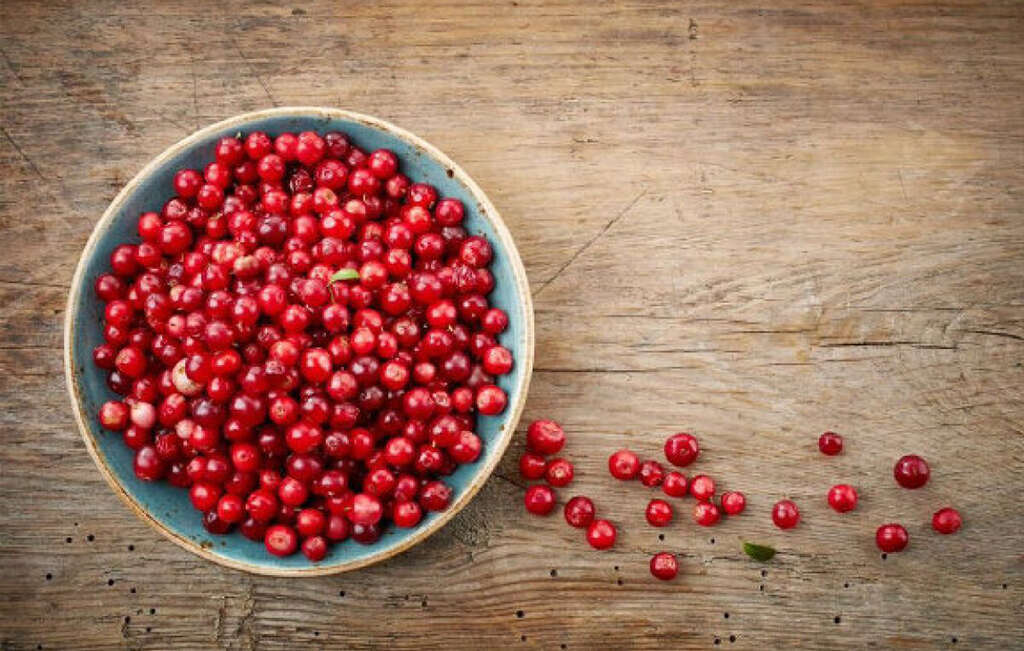
Benefit #9: Cancer Fighting
Cancer affects many and due to its aggressive takeover of the body, researchers are constantly seeking ways to prevent the disease from occurring in the first place. There has been research on cranberries and its potential to inhibit cancer cells.
In the evaluation of research targeting cranberries and cancer, there has been much support on the inhibitory actions of the fruit. It is believed the fruit especially has a protective effect against esophagus, stomach, colon, bladder, prostate, and lymphoma cancer. The mechanisms behind cranberry-linked cancer inhibition include killing the cancer cell and leaving the healthy ones.
Benefit #10: Protection from Ulcers
Stomach ulcers are incredibly painful and because they are slow to heal, the healing process can be brutal and unbearable. In addition, many last quite some time before they are diagnosed, prolonging the healing and pain process.
Certain types of stomach ulcers are related to a bacterium called Helicobacter pylori. These bacteria are very tricky as someone can have traces of H. pylori and be healthy for ages before seeing side effects. It’s possible that cranberries may help prevent these bacteria from attaching to the lining of the stomach, similar to how they help prevent bacteria from attaching to the lining of the urinary tract.




